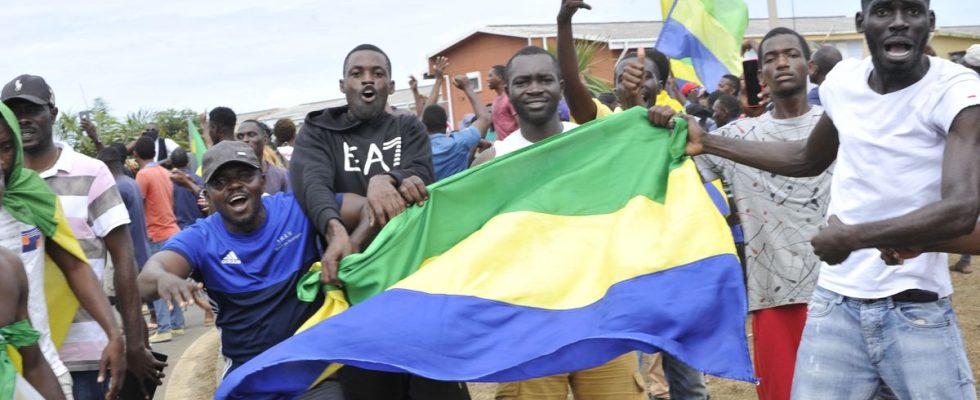The statement could have been premonitory if the location had been more precise. At the opening of the ambassadors conference Monday in Paris, Emmanuel Macron spoke of “an epidemic of putsch” in the Sahel. Two days later, the contagion reached Gabon, in central Africa. Soldiers announced on Wednesday that they had put “an end to the regime in place”, placing President Ali Bongo, who had just won a highly disputed election, under house arrest. The putschists’ coup could precipitate the end of the Bongo dynasty, which has ruled (father Omar then son Ali) this small country of two million inhabitants for more than half a century.
Before this putsch, Africa had suffered seven coups in three years (Niger, Burkina Faso, Sudan, Guinea, Mali). It is tempting, but dangerous, to encompass all these salient political facts in order to make a global analysis of them, according to Caroline Roussy, research director at Iris. “To compare is to fall into a kind of trap. Central Africa, the Sahel, and West Africa are not facing the same issues. Talking about the domino effect is a somewhat short analysis. There is rather a convergence of agendas, with a presidential election which has just taken place in Gabon”, warns the expert.
Gabon, a special case difficult to compare
Removed from office by the military, Ali Bongo had been in power for 14 years and had just returned for a third term after a contested election. Albert Ondo Ossa, his main political opponent, dared to mention fraud. Consequences ? Ali Bongo cut off the Internet and instituted a curfew, officially to guarantee the “security of the country”. Already in 2016, Bongo’s presidential victory sparked violent protests across the country. A chain of events that we have seen in other coups, although Gabon can be considered a “special case”. “It was the emblem of Françafrique and then of its evolution: the interest of rich Africans who come to master the balance of power with French diplomacy, recalls Lova Rinel, researcher associated with the foundation for strategic research, the Gabonese case . These neocolonial systems have generated mafias and a defeat of democratic promises”.
One of the few common points of these African political crises which do not exclusively affect the former French colonial empire would be the democratic system, in its questioning or in its desire to settle. “Leaving aside the Nigerien coup, in the Sahel, it is the trial of democracies that have been deemed ineffective in the face of the terrorist threat and too subservient to Paris. In Gabon, we have the impression that it is a putsch to set up democracy”, notes Caroline Roussy.
More political crises to come?
This Wednesday, the Gabonese putschist general Brice Oligui Nguema announced the “retirement” of Ali Bongo in favor of a transitional leader, not yet named. Like Gabon, other African regimes could fall into instability, predicts Lova Rinel. “Paradoxically, the triggering moment is the elections. We will have to observe the situation in Cameroon and Congo-Brazzaville, with aging leaders, or even in Madagascar or Chad, with governance that does not have a good record”.
Faced with these instabilities, France, often decried by the putschists, must now content itself with a role of secondary actor, as expressed in The world Cameroonian philosopher and historian Achille Mbembé. “What France is particularly accused of is not implementing sanctions against these mafia systems. »
“The time of Francafrique is over,” insisted Emmanuel Macron during his tour of Central Africa six months ago. Despite the end of Operation Barkhane, Paris retains military camps on the continent – some 350 men in Gabon – and does not intend to withdraw or disengage completely, recalled the Elysée.

